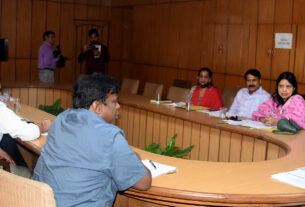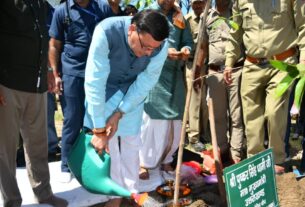Dehradun/New Delhi- Hon’ble Supreme Court has expressed its anguish over the criminalisation of politics on numerous occasions, but what cripples our legal system is the fact that the persons who can actually bring reforms through legal channels, they are the root cause of the problem. Former Chief Justice of India Dipak Misra had refused to disqualify elected MLA/MPs who are facing charges in serious offences, since this power vests in the Parliament by making a law to that effect. But given the heavy pendency of criminal cases and the urgent need to fast-track the cases pending against MLA/MPs, the Hon’ble Supreme Court had directed the States to constitute Special Courts exclusively for such matters. But many of the states have still not complied with the said directions, and Uttarakhand is one of such states.
The New Chief Justice of India Ranjan Gogoi has recently taken a serious note of lack of enthusiasm on the part of States to constitute Special Courts. The Apex Court will not only monitor the progress in this regard, but also hold Chief Secretaries and Registrar Generals of High Courts liable, who are yet to comply with the Court’s order. Uttarakhand is one of the states which has not yet provided the details of cases pending against the elected representatives. While the political parties are quite fond of accusing each other of corrupt practices and scams, none seem eager to take concrete steps to weed out the criminal elements. In Uttarakhand, much like other States, the never ending war between parties regarding misappropriation of public funds usually gets restricted to Newspaper headlines and News Channels, and hardly any of the criminal cases pending against the elected representatives here involve corrupt practices, as if the Prevention of Corruption Act was meant for bureaucrats only. While the States are reluctant to set up Special Courts, there is hardly any possibility that the Political Parties would take note of the Apex Court’s concerns and refrain from giving ticket to the persons accused of serious offences.
In certain democratic countries, referendum is recognized as a mode of law making, wherein the citizens not only vote on any particular bill to be passed as law, but the citizens can initiate bills for referendum irrespective of whether their representatives have introduced it in their respective legislatures or not. Lack of such a key provision in India is proving fatal in preventing the criminalisation of politics, and reluctance of States to constitute Special Courts for cases against MLA/MPs reflects this glaring defect in our legal system.




